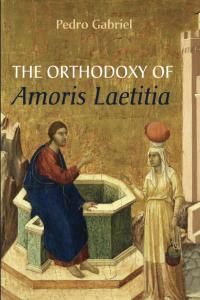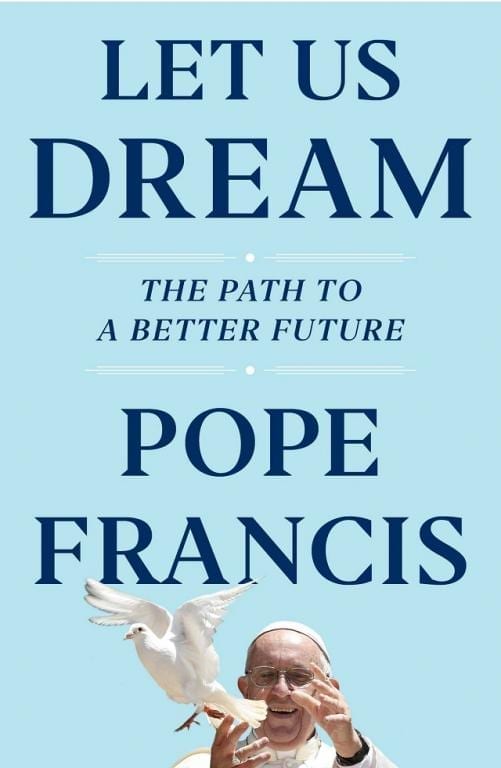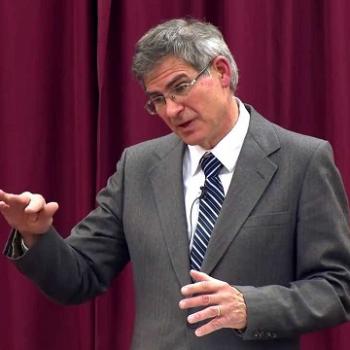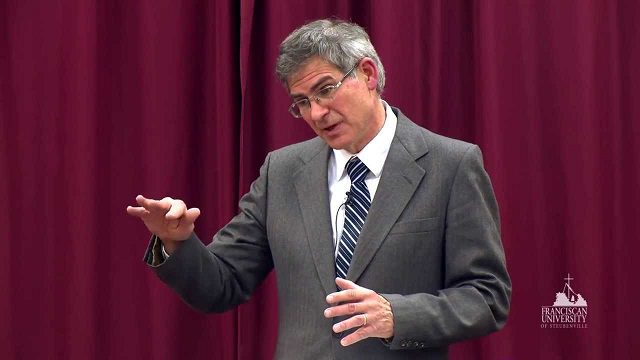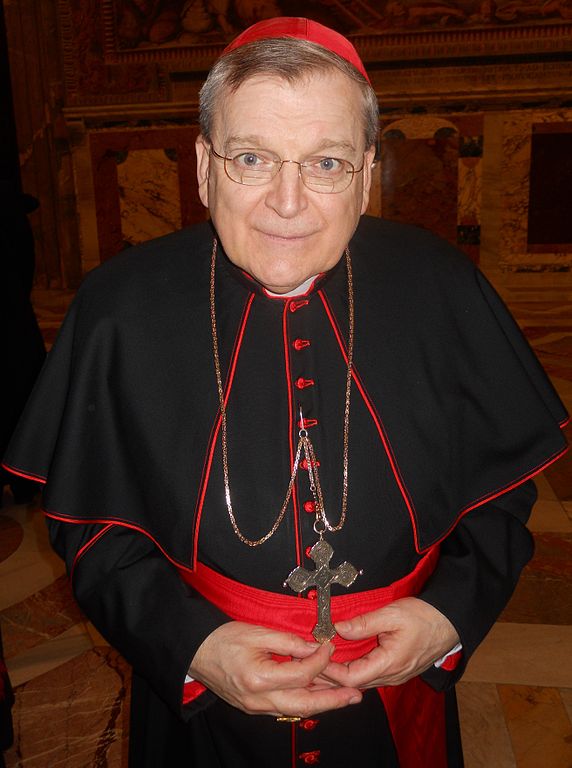Dr. Pedro Gabriel, a Portugese oncologist, is also a fine Catholic apologist. He co-founded and is a regular contributor to the excellent website, Where Peter Is: which contains an extensive collection of articles in defense of the orthodoxy of Pope Francis. He is currently taking classes in moral theology at the Pontifical University of the Holy Cross, and earned a Diploma with Honors from the London School of Journalism. He also writes Catholic novels “with a Tolkienite flavor.”
*****
Dr. Gabriel’s book, The Orthodoxy of Amoris Laetitia, was published on 18 February 2022 (Eugene, Oregon: Resource Publications). The introduction on its back cover reads:
When Amoris Laetitia was published in 2016, it became the most controversial papal document since Humanae Vitae. Many said that Amoris Laetitia was “confusing” and “required clarification.” Others claimed that it was heterodox, while comparing it unfavorably with other church documents. But is this really the case?
In this book, Pedro Gabriel sets out to explore Amoris Laetitia’s controversial eighth chapter. What does the document actually teach as it pertains to the access of divorced and civilly remarried people to the Eucharist, and how can it constitute a legitimate development? As Pedro Gabriel tries to answer these questions, he will also cover the most common arguments being leveled against Amoris Laetitia, and show how this exhortation can be reconciled with Catholic orthodoxy.
Dr. Gabriel, in the Preface, wrote about the controversies surrounding the release of Pope Francis’ post-synodal apostolic exhortation Amoris Laetitia on 8 April 2016, and mentioned a shortcoming that has been a hallmark of “Pope Francis criticism” these past nine years:
I had learned a lesson during Benedict XVI’s pontificate: never rely blindly on media reporting. So I did what I had learned during the previous papacy: not to be swept away by the tsunami of scandal, but to consult the primary sources instead. . . .
Time after time, I would read the actual church documents from primary, authoritative sources and feel like the commentaries from certified apologists and popular pundits had missed the mark. It seemed like they were trying to read church doctrine according to a preconceived image of the church that did not always correspond to reality. (pp. xi, xiv-xv)
Indeed, this method is the only sensible (and charitable) way to go about things. But it is violated time and again. I can bear witness that this is the case, based on the course of my own apologetics endeavors: specifically those in defense of Pope Francis.
The moral and liturgical issues involved in the controversies surrounding this papal document are complex and multi-faceted. I can’t possibly delve into all that in the space of a book review. So I have decided — for the sake of relative brevity — to concentrate on portions of Dr. Gabriel’s book where he specifically notes continuity of Amoris and Pope Francis’ ideas and opinions, with those of the two previous popes: Pope Benedict XVI and Pope St. John Paul II. This treatment of consistent development of the Church’s doctrine was addressed in Section III (“A Harmonious Development”), comprising chapters 10-15, or roughly 100 pages out of 281 total.
One of the most important and central points of the entire book occurs in chapter 10, pages 142-143. Misunderstandings along these lines lie underneath much of the flawed and excessive criticism of Amoris Laetitia:
Amoris Laetitia relies on the teaching on mitigating circumstances. . . . mitigating circumstances do not contradict other parts of doctrine, namely the objectively evil nature of all intrinsically evil acts. In fact, in that very same chapter [7], I make a distinction between the doctrine of mitigating circumstances and situation ethics. Adopting the latter would be to adopt the illegitimate model of doctrinal discontinuity, since it contradicts the objectively evil nature of some sins. But the former is a legitimate development.
Therefore, if Amoris Laetitia grounds itself on the teaching on mitigating circumstances, while the previous church pronouncements . . . based themselves on the doctrine of the objectively evil nature of sin, there can be no doctrinal contradiction. In fact, mitigating circumstances presuppose the doctrine of the objectively evil nature of sin. Mitigating circumstances diminish subjective culpability, and there can be no culpability in an act that is not evil. The teachings build upon each other.
What we have observed is a shift of emphasis. Francis chose to emphasize subjective culpability, while his predecessors chose to emphasize the objectively evil nature of sin. Papal critics observe this shift of emphasis and wrongly conclude that a de-emphasizing of the objectively evil nature of sin means that this part of doctrine was abandoned in favor of a new, contradictory teaching. This is, however, erroneous.
In the next chapter (11), Dr. Gabriel tackles the alleged discontinuity or contradiction between Pope St. John Paul II’s post-synodal apostolic exhortation Familiaris Consortio, from 1981. It was exactly the same sort of papal document as Amoris Laetitia, although, as Dr. Gabriel noted, “papal critics will sometimes ascribe a low magisterial weight to Amoris Laetitia” (p. 152), while viewing Familiaris as considerably more authoritative. This has no canonical basis.
Dr. Gabriel (on p. 154) cites Familiaris Consortio, section 84, which asserts that divorced and remarried couples may not receive Holy Communion in a Catholic Church. But Pope John Paul the Great went on to specify a condition in which such persons could receive Holy Communion:
. . . a way of life that is no longer in contradiction to the indissolubility of marriage. This means, in practice, that when, for serious reasons, such as for example the children’s upbringing, a man and a woman cannot satisfy the obligation to separate, they “take on themselves the duty to live in complete continence, that is, by abstinence from the acts proper to married couples.” [my bolding and italics]
Note that such a couple is still living together, but abstaining from sexual relations. Thus, this is an example of a divorced and remarried person being able to receive the Eucharist. But they can only do so by refraining from sexual activity with the person to whom they are not truly married, in the eyes of the Church. This was proclaimed by Pope St. John Paul II over forty years ago. Yet we saw no firestorm of protest or accusations of doctrinal / moral heterodoxy; no “dubia” confronting him. Dr. Gabriel demonstrates a direct line of continuity in development between Familiaris (still in section 84) and Amoris:
Also, even if Familiaris Consortio did not go as far as Amoris Laetitia regarding sacramental discipline, it certainly laid out the foundations for Amoris Laetitia, by saying:
Pastors must know that, for the sake of truth, they are obliged to exercise careful discernment of situations. There is in fact a difference between those who have sincerely tried to save their first marriage and have been unjustly abandoned, and those who through their own grave fault have destroyed a canonically valid marriage. Finally, there are those who have entered into a second union for the sake of the children’s upbringing, and who are sometimes subjectively certain in conscience that their previous and irreparably destroyed marriage had never been valid. (pp. 162-163; italics added by Dr. Gabriel to Pope St. John Paul’s words)
Dr. Gabriel then observed:
Anyway, we should bear in mind that Familiaris Consortio does not claim to have the last word on the matter. Familiaris Consortio urges a greater dialogue between pastors and laity, pastors and families, and theologians and experts in family matters. “In this way the teaching of the Magisterium becomes better understood and the way is opened to its progressive development.” [section 73]
It seems to me to be undeniable that this dialogue is precisely what Pope Francis sought to undertake with the two synods of the bishops on the family. (p. 163; italics added by Dr. Gabriel to Pope St. John Paul’s words)
In chapter 12, Dr. Gabriel ably shows how Amoris Laetitia does not contradict (rather, consistently develops) the outlook of Pope St. John Paul II’s 1993 papal encyclical Veritatis Splendor.
In chapter 13, Amoris is shown to be in harmony with Pope Benedict XVI’s a post-synodal apostolic exhortation, Sacramentum Caritatis (2007). As with Familiaris, that document (cited by Dr. Gabriel on pages 183-184) also affirmed the validity of Catholics in an irregular marital situation being able to receive Holy Communion, if they abstain from sexual relations:
Finally, where the nullity of the marriage bond is not declared and objective circumstances make it impossible to cease cohabitation, the Church encourages these members of the faithful to commit themselves to living their relationship in fidelity to the demands of God’s law, as friends, as brother and sister; in this way they will be able to return to the table of the Eucharist, taking care to observe the Church’s established and approved practice in this regard. [section 29; italics added by Dr. Gabriel]
On page 200, Dr. Gabriel notes that the Catechism of the Catholic Church (#1650) also teaches the same doctrine and practice.
If we go back to chapter 4, where Pope Francis’ own views are discussed, we see that they are developments of the thoughts of Pope St. John Paul II and Pope Benedict XVI. Dr. Gabriel observed, in answering his own question about whether “every” divorced and remarried person could receive Holy Communion:
I think the answer to this question is found in footnote 351 itself. The footnote starts with “in certain cases, this can include the help of the sacraments.” By definition, this wording excludes some cases. . . .
On the other hand, the main topic of Amoris Laetitia’s eighth chapter (where the footnote is located) is discernment. If Amoris Laetitia simply opened up the possibility to any civilly remarried person who sought it, why spend so much time talking about discernment at all? . . .
Nevertheless, is there actual textual evidence supporting the claim that the exhortation does not simply open access to the Eucharist to every single divorced and remarried person? Let us read #300:
These attitudes are essential for avoiding the grave danger of misunderstandings, such as the notion that any priest can quickly grant “exceptions,” or that some people can obtain sacramental privileges in exchange for favours.
Amoris Laetitia does not give carte blanche for a priest to grant exceptions or sacramental privileges at will. According to the pope himself, that would be a “grave misunderstanding.” (pp. 49-50)
Dr. Gabriel elaborates upon Pope Francis’ teaching; getting to “the heart of the matter” in terms of the current “controversy”:
Since it was in #303 that Pope Francis mentions not fulfilling the objective ideal, let us contextualize by reading the beginning of that paragraph:
Recognizing the influence of such concrete factors, we can add that individual conscience needs to be better incorporated into the Church’s praxis in certain situations which do not objectively embody our understanding of marriage.
Previously, we saw that conscience determines what the most generous response is, even if it is not yet the fully objective ideal. This same conscience needs to be “better incorporated into the Church’s praxis.” How? By “recognizing the influence of such concrete factors.”
What “concrete factors” are these? This directs us to the previous couple of paragraphs, which in fact deal solely with those “concrete
factors”:The Church possesses a solid body of reflection concerning mitigating factors and situations. Hence it can no longer simply be said that all those in any “irregular” situation are living in a state of mortal sin and are deprived of sanctifying grace. [AL, 301]
The church teaches that these mitigating factors may reduce culpability in such a way that a sin with grave matter is not a mortal sin. This is doctrinally sound . . . It is also doctrinally sound to state that a person can receive communion if he or she is not in mortal sin . . . Pope Francis would only incur heresy if he stated the opposite, allowing people in mortal sin to receive communion.
Pope Francis brings up the church’s “solid body of reflection concerning mitigating factors” explicitly to prevent the notion that “the demands of the Gospel are in any way being compromised.” [AL, 301] (pp. 52-53)
So what is the bottom line in Pope Francis’ development of sacramental and pastoral practice?:
[T]he permissibility of communion to some who have divorced and civilly remarried, per footnote 351, has everything to do with mitigating factors diminishing subjective culpability, so that the person can “live in God’s grace” (i.e., not be in mortal sin).
In fact, this interpretation is even confirmed elsewhere in the text:
What is possible is simply a renewed encouragement to undertake a responsible personal and pastoral discernment of particular cases, one which would recognize that, since “the degree of responsibility is not equal in all cases,” the consequences or effects of a rule need not necessarily always be the same. [AL, 300] (p. 54)
I think the examples I have shown illustrate the remarkable cogency and articulate nature of this wonderful and immensely helpful book. The above material only scratches the surface (though I hope it adequately covers the “heart” of it). Dr. Gabriel seems to comprehensively approach the vexed topic from all angles: always bringing to it a faithful attention to orthodoxy and Church precedent, including very subtle and nuanced aspects of moral and pastoral theology, and a proper understanding of Newmanian doctrinal development (itself a very poorly understood element among far too many).
This is sorely needed in our time, in which suspicions and polarization run rampant, and in which (sadly) Catholic apologetics itself is sometimes prone to outside corrupting influences, including cultural and political factors (whether from the “right” or “left”) that are “extraneous” to the Catholic Mind and contradictory to it. Dr. Gabriel, in his Conclusion, notes how such critical apologists are habitually “scrutinizing every single
act of the Holy Father and portraying it in the worst possible light, in order to validate a narrative that slowly took form and shape. They did this sometimes with open hostility and sometimes in more subtle ways, . . .” (p. 260).
As a full-time Catholic apologist myself, and defender of this pope and all the recent popes, I have noticed the same tendencies again and again. It’s obviously not charitable to interpret the Holy Father’s words and actions “in the worst possible light.” This is the grave sin of bearing false witness; all the more so when directed towards a pope, and it is directly contrary to a love that “believes all things, hopes all things” (1 Cor 13:7, RSV), and the Christian duty to “in humility count others better than yourselves” (Phil 2:3).
Near the end, Dr. Gabriel makes a very important statement of purpose:
Finally, I hope that this book might have helped genuinely confused Catholics to have a little more clarity on this issue. I hope, at least, that their suspicions against the Holy Father might have been attenuated somewhat, so that they may give him another chance and start reading him with a new perspective. (p. 262)
May it be devoutly hoped and prayed for! I urge every Catholic who is troubled by Pope Francis and/or particularly, Amoris Laetitia, to buy this superb book and sincerely, prayerfully ponder its content. If you don’t fully understand it, read it twice. I think it is that good and that important. You owe it to yourself, to the Holy Father, and the principle of fair play.
***
Photo credit: image of the book cover of The Orthodoxy of Amoris Laetitia, on its Amazon book page.
***
Summary: Dr. Pedro Gabriel’s book, The Orthodoxy of Amoris Laetitia defends the controversial papal document against numerous fashionable and unfounded criticisms.



